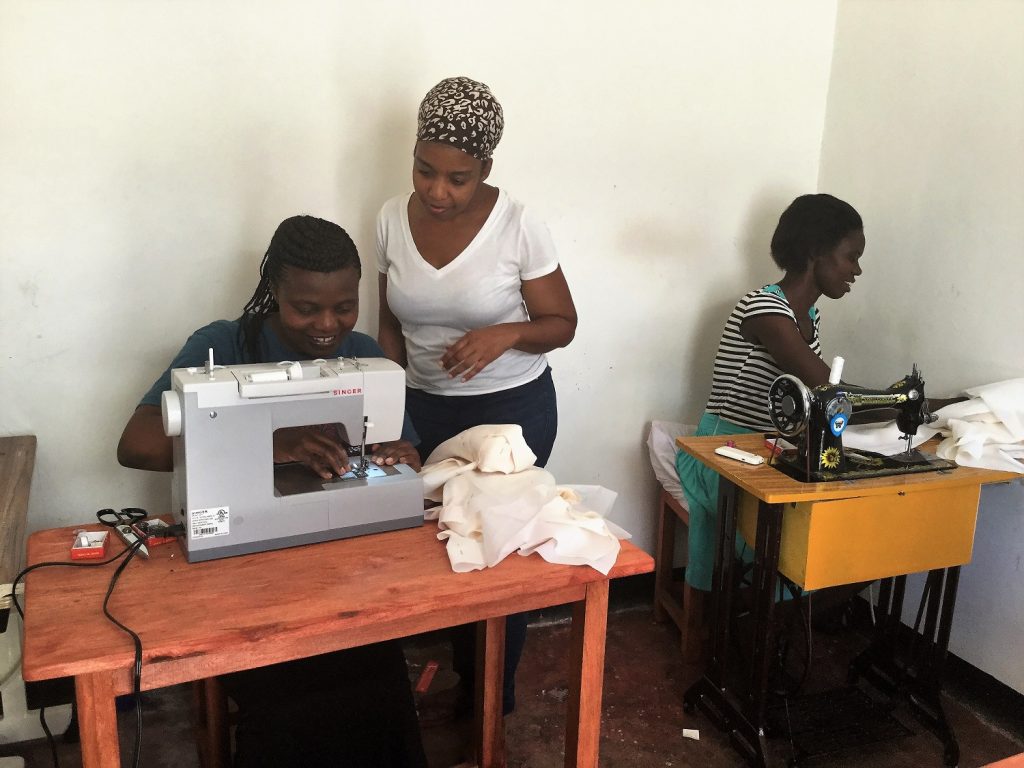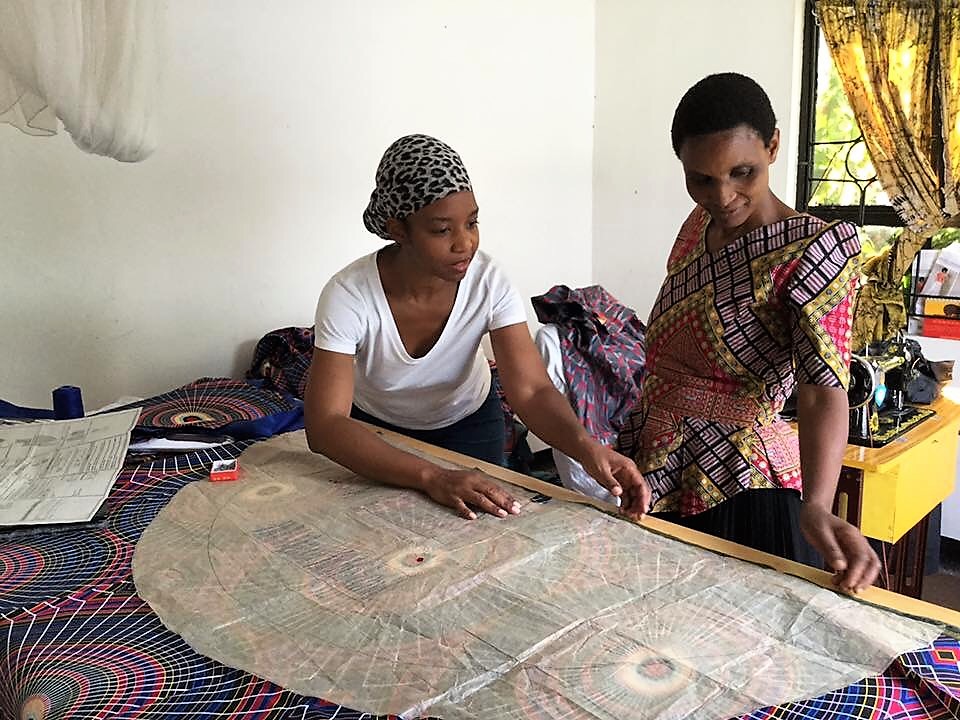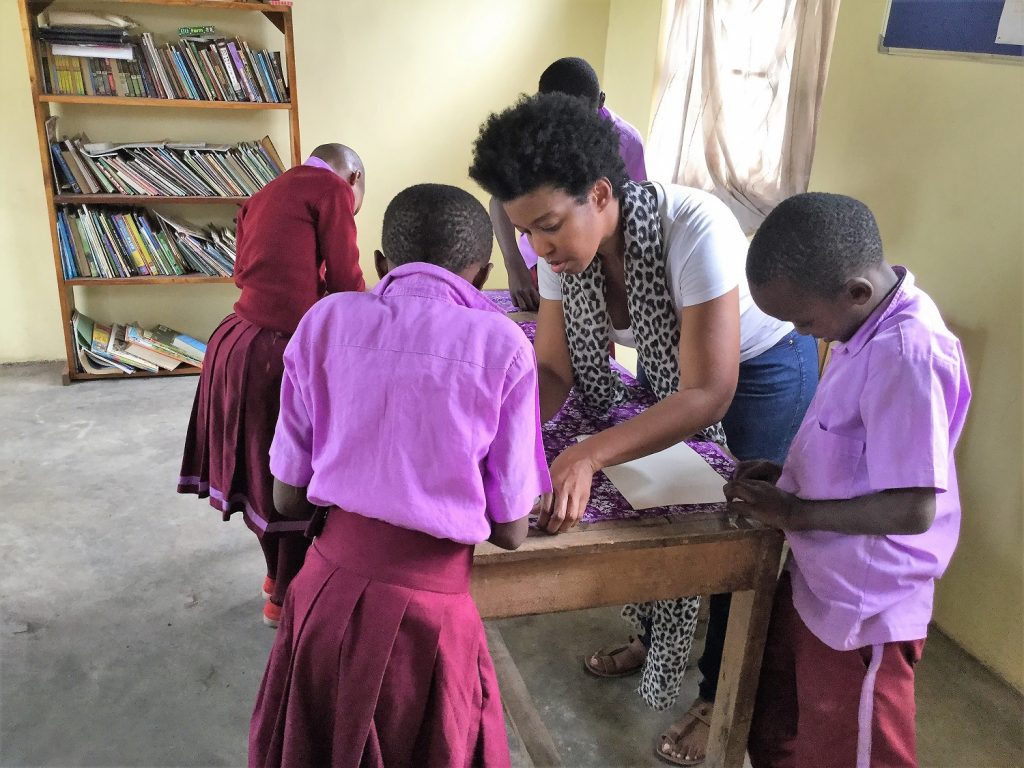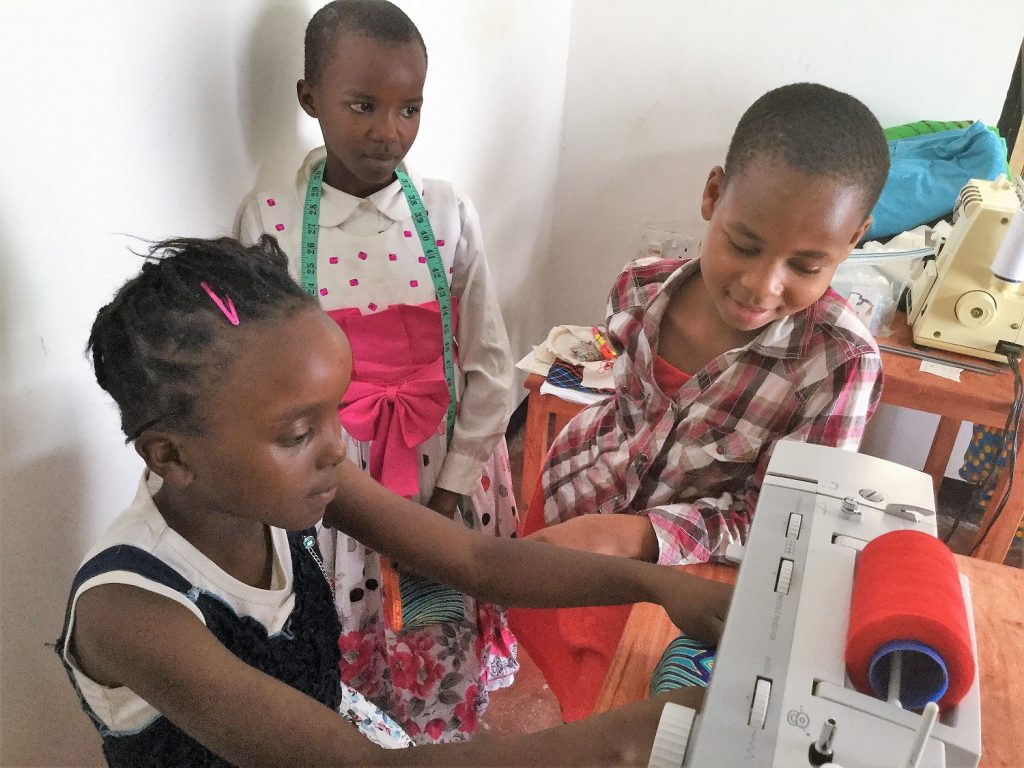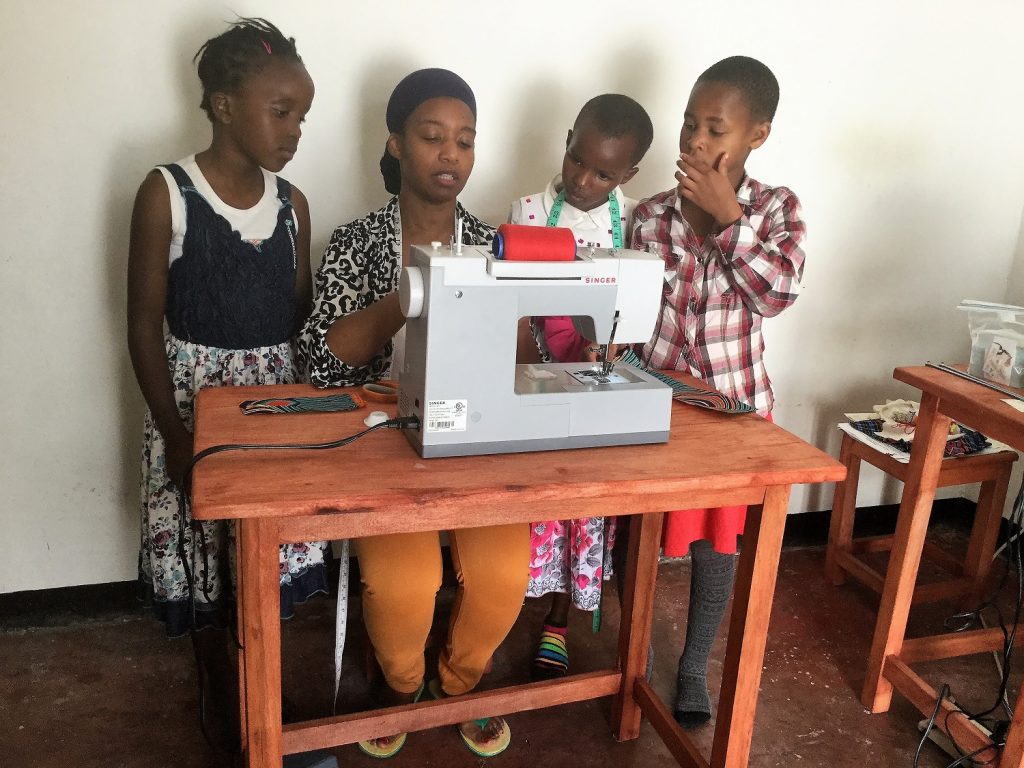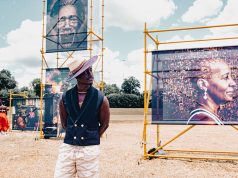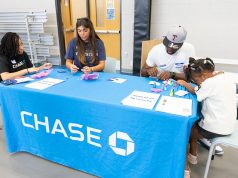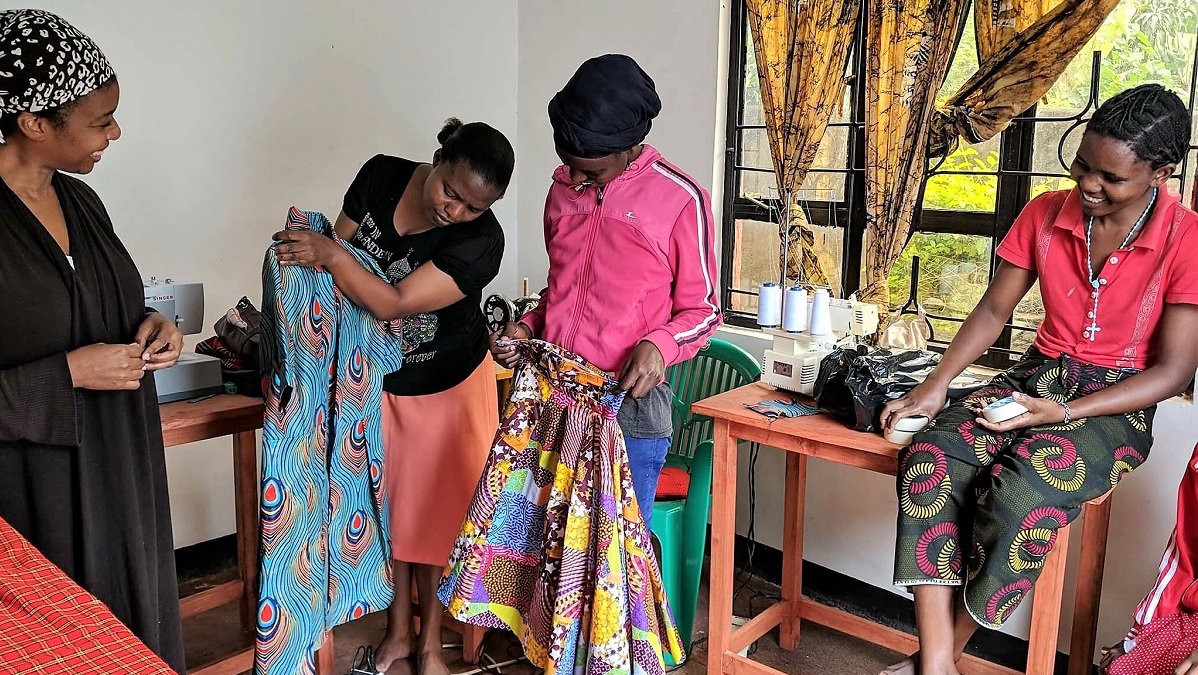
By Carla Davis
Alabama NewsCenter
Although they are an ocean apart, Mary Jones and Stacey Scott are partnering to build a business that is changing lives.
It all began when Jones and her husband, both Birmingham-area doctors, were on an annual medical mission trip to Kenya in Africa in 2014. Confronted with the poverty and hardships the people face every day, Jones knew she had to do more.
“After getting to know the people and their spirit, I realized they want the same things for their family that we want for ours, but they are stuck in a never-ending cycle of poverty,” Jones said. “I wanted to do something to help them break out of that cycle. Kenya is where we first started working with the artisans.”
Jones opened Maasai Chic in 2016. But doing business with a country thousands of miles from Birmingham was almost impossible. Breaking through the cultural and language barriers, having no contacts on the ground in Kenya and the time differences were big issues, she said.
Jones was almost ready to give up when a friend suggested she contact Stacey Scott, a Birmingham native who had moved to Arusha, Tanzania, to help run a healthcare and community development nonprofit organization, Africa Integrative Medicine (AIM). Scott was in town at the time visiting her family.
‘Meant To Be’
The two met in a local coffee shop where Jones laid out her goals for Maasai Chic.
“Meeting Mary was meant to be,” said Scott, co-director of AIM. “We had mostly been raising funds and dealing with healthcare issues through our organization, but we couldn’t really figure out what we were supposed to do next. Finding Mary and getting involved in her business put us on the right path.”
With Scott on the ground there, Jones turned her attention to the women of Tanzania – many of whom have little education and no way of getting a job.
“A lot of studies have shown that when you employ a woman, she will invest those dollars in herself, her children and their education, and her community,” Jones said. “When you invest in women, you make a greater impact.”
Jones, who fancies herself a “fashionista,” got the idea of launching Maasai Chic, an elegant, sophisticated clothing line featuring east African designs and beadwork produced by the women of Tanzania. She fell in love with this bold, colorful style of clothing while visiting Africa and wanted to bring it home to the United States.
“The women already have sewing skills,” Jones said. “They just need to refine them, and they need a market for their products. I felt that this is a really accessible way that these women could earn money and make a living.”
Although her focus is healthcare, Scott has previous experience in the fashion world, making her the perfect partner for Jones. While living in New York City several years ago, Scott worked in management at Macy’s at Herald Square and Ann Taylor, both popular nationwide clothing stores.
Scott’s interest in fashion design and making clothing began as a little girl. Her grandma, a homemaker who earned extra money by sewing, passed on that skill to her granddaughter.
Scott also shares Jones’ vision: bringing a better life to the people in Tanzania. But Scott has gone one step further by moving to the front lines.
“As a little kid, I was always volunteering,” said Scott, who visited Tanzania for the first time while attending the University of Alabama at Birmingham. “Now I have an organization that’s geared to helping people in a developing country where opportunities are almost nonexistent. I just felt I could do so much more if I live here. I really feel like I’m doing God’s work.”
A Blossoming Business
After their first meeting at the coffee shop, Jones and Scott developed a business plan and went to work.
Scott converted an office at AIM into a sewing room. She began training local women to make Western-style clothing, taught them how to use motor-operated sewing machines and introduced them to basic skills needed to start their own business.
Jones and Scott work together to design the pieces that launched Maasai Chic. Scott draws and cuts the patterns and sends them to Jones, who chooses the items she wants the artisans to create for her line.
“When we first started, we were using bought patterns and modifying them,” Jones said. “With each successive line, we are getting more comfortable at designing the clothes ourselves.”
This spring, Jones and Scott rolled out their second clothing line at Kanzi, a Homewood store that features merchandise created by east African artisans. The clothing is also available online at https://maasai-chic.com.
“Mary’s project is actually one of our most successful efforts,” said Scott. “It helps with capacity building, community development and women’s empowerment. Mary gets a product, the artisans are trained on new skills they can use to help their families, and the money we make from managing the project feeds back into our nonprofit.”
In the next six months to a year, the Maasai Chic project will also begin benefiting the children and marginalized women in the area, Scott said. AIM is using leftover fabrics and scraps to teach sewing to kids at a local primary school and children’s home.
The next step for Maasai Chic, Jones said, is to expand to the wholesale market with the debut of the fall clothing line.
Jones said she feels that helping the women of Tanzania is her “calling.”
“To me, it’s an extension of being a doctor,” Jones said. “My mother taught us it’s not what you get, it’s what you give. When you have much, much is required of you. Maasai Chic is not only a platform for me to do something in Africa, but it’s a platform to tell others that they can make a difference, too, no matter where they are.”
Jones has also formed a new partnership with Birmingham nonprofit, Bib and Tucker Sew-Op. Through its Woodlawn Training Program, the organization teaches area residents the art of sewing, thus providing them with a skill they can use to generate income. In this way, she is bringing home her mission of helping women in need become more self-sufficient.



